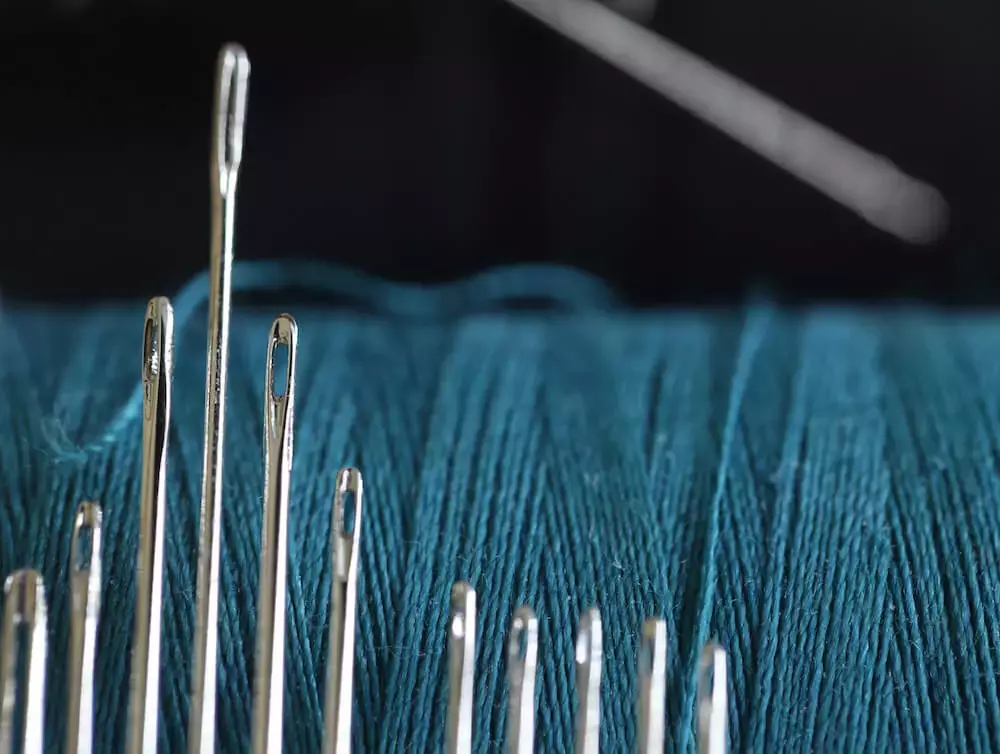Sewing Machine Needles: Basics for Beginners
2023-01-10
If you're new to the world of sewing, it can be difficult to decipher all the jargon that gets thrown around when it comes to sewing needles. Luckily, this guide will teach you everything you need to know about sewing machine needles as a beginner.
The Anatomy of a Sewing Needle
Before you can recognize the subtle differences between different types of needles, it's important to understand the basic anatomy of a sewing needle from top to bottom.
The top blunt end of a needle that is inserted into your machine is called the butt or shank. Directly below the shank is the shoulder, which slopes into the body of the needle.
The shaft, also known as the blade, is the body of the needle. Its thickness determines the size of the needle.
At the bottom of the shaft but above the eye is a small indentation known as the scarf. The scarf is what allows your machine's bobbin hook to easily grab the thread to create a stitch.
Next is the eye of the needle, which the thread is fed through. Needles have different sizes of eyes to accommodate specific types of thread.
Finally, the bottom of the needle consists of the point and the tip. The point is the area between the eye and the tip. Points come in many different shapes and sizes, while tips come in varying degrees of sharpness.
The size, shape, and sharpness of the point and tip play a large role in determining whether a particular needle will work well with a specific fabric.
Sewing Needle Sizes
Sewing needle sizes range from 60/8 to 110/18. These numbers refer to the thickness of any given needle. The needle size you should use will depend on the weight of your fabric and the type of thread you are using.
Sewing Needles for Lightweight Fabrics
Use 60/8, 65/9, or 70/10 sewing needles on fine and lightweight fabrics such as:
- Silk
- Chiffon
- Rayon
- Lace
- Voile
- Organza
- Tulle
- Netting
These thin, fine needles are small enough to pierce through delicate fabrics without snagging or tearing.
Sewing Needles for Medium-Weight Fabrics
75/11, 80/12, and 90/14 are best suited for medium-weight fabrics such as:
- Cotton
- Jersey
- Polyester
- Lycra
- Linen
- Taffeta
- Velvet
- Muslin
- Fleece
These mid-size needles are extremely versatile and can even handle thin denim.
Sewing Needles for Heavy Fabrics
Heavy fabrics call for thicker needles that won't snap or bend under pressure. Reach for your sturdy 100/16 or 110/18 sewing needles if you're working with:
- Heavy denim
- Corduroy
- Canvas
- Tweed
- Leather
- Wool
- Vinyl
- Upholstery
It's important to note that although size is important, it's not the only thing that matters when it comes to sewing needles. The type of sewing needle you use is also critical.
6 Common Types of Sewing Needles
There are many different types of needles, each with slight variations to their anatomy that make them better suited for certain projects. The type of sewing needle you should use is determined by the type of fabric you are sewing.
1. Universal Sewing Needles
Universal needles can be used on most types of fabrics, and they are ideal for woven fabrics.
2. Quilting Needles
Quilting needles have an extra-long tip, an extra-sharp point, and a longer, strengthened shaft to make piercing through many layers of fabric or batting a breeze.
3. Ball Point Needles
Ball point needles have a more rounded tip that makes them ideal for knitted fabrics, such as rib knits, fleece, and cotton knits.
4. Sharps Needles
Sharps needles have an ultrafine tip that makes them ideal for silk and tightly woven fabrics.
5. Stretch Needles
Stretch needles are the solution to your sewing woes when it comes to stretchy fabrics like Lycra and spandex. These needles have a modified scarf that helps prevent skipped stitches.
6. Jeans Needles
Jeans needles are designed with a stronger shank and supersharp point to easily pierce through denim and other dense fabrics.
Make GoldStar Tool Your Go-To Source for Cutting and Sewing Supplies
If you're tired of endlessly browsing local craft stores for sewing machine parts or specific needles, turn to GoldStar Tool for all of your cutting and sewing needs.





